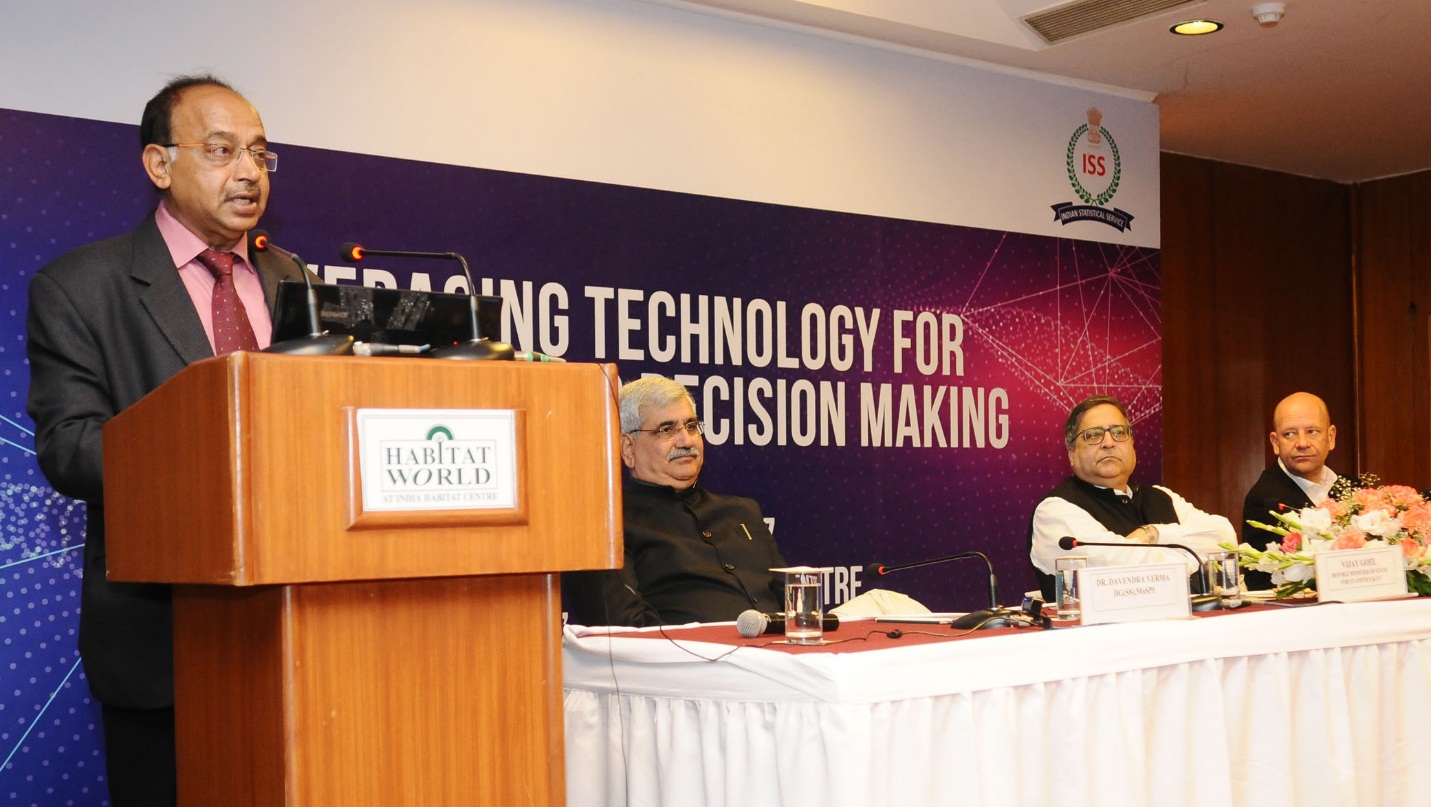Ministry of Statistics & Programme Implementation
MoSPI & UN partner to harness potential of data for development
Role of Technology in Monitoring Sustainable Development Goals (SDGs)
Recognizing the importance of outcome-based monitoring to track progress on national priorities and the ambitious Sustainable Development Goals (SDGs), the Ministry of Statistics and Programme Implementation (MoSPI) and the United Nations in India unveiled a plan to closely collaborate on leveraging technology for evidence-based decision-making.
Speaking at a seminar on Leveraging Technology for Evidence Based Decision Making in the capital on Saturday, Minister of State for Statistics and Programme Implementation, Shri Vijay Goel, noted that, “Merging new technologies with data and statistics is essential for better and more informed policymaking at the central and state level of governance.”
In order to monitor progress on the SDGs, MoSPI and the UN are partnering on the SDG Dashboard for India, which aims to bring together data from various datasets, portals and sectors onto one common platform. In addition, MoSPI and the UN are engaged in setting up the Data for Development Coordination Committee, which will bring together UN agencies and MoSPI, enabling stakeholders to share experiences and expertise around SDG monitoring.
Chief Statistician of India & Secretary MOSPI, Prof.T.C.A Anant encouraged statisticians to internalise the latest developments in data analytics and apply them to their ongoing work. “It is essential for statisticians to engage with new forms of data collection and find links with traditional evidence-based surveys,” he argued. Elaborating further on the role of official statisticians, Prof. Anant stated that technology has made the traditional task of collecting, processing and disseminating easier but it has also ended the monopoly of statisticians as supplier of statistics. Today, everyone from school students to senior citizens can not only access and process data but is also a generator of data. This has created a challenge for official statistician. They need to focus not just on their tradition concerned and approaches but to engage with these newer participants of data users, data managers and data scientists in the data dialogue, he added.
Participants identified emerging technologies such as artificial intelligence, the internet of things, big data and blockchain as those with great potential for applications in development.
The UN Resident Coordinator in India, Yuri Afanasiev, stressed the importance of unlocking the potential of technology for development. “Both the realisation of the SDGs and the realisation of India’s national development goals will rely on building effective partnerships. India could be a leader in developing intelligent and unique developmental solutions, which would combine data analytics tools and the SDG lens to target interventions in geographical hotspots,” he said.
At the conference on Leveraging Technology for Evidence Based Decision-making, organized by the Indian Statistical Service and United Nations in India, case studies such as the automation of SRS-based birth and death registrations by the Registrar General of India, and collection of unemployment and employment data on increased frequency by MoSPIhighlighted the role of technology in simplifying data collection and analysis.
Social Cops, co-founder, Shri Prukalpa Shankar, demonstrated examples where technology has been used to drive decision making by the government of India.
Vikas Arora, Head, Cloud Business, India and South Asia, IBM highlighted the key trends shaping the field of data analytics. These include the explosion of both structured and unstructured data, data collection from devices and sensors and not just human beings, data mining, and the tremendous increase in computing capacity and storage. This democratization of data, with people are not only using data but also generating it, can dramatically advance the ability to monitor the impacts of development programmes, in addition to informing the way they are designed and implemented.


